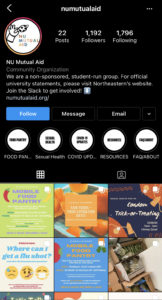
On Sept. 4, Northeastern University suspended 11 first-year students after they gathered at the Westin Copley Place hotel in Boston earlier that week, violating the university’s COVID-19 safety guidelines. The university’s swift and harsh punishment shows its commitment to enforcing safety guidelines that protect the community. However, the university’s original statement also mentioned that there would be no refund for the $36,500 tuition for this fall semester. This decision fueled public concerns that the university’s intentions behind reopening for the fall semester were largely due to desires for profit rather than for an educational requirement.
Northeastern’s decision quickly became controversial as numerous major news outlets, college students, parents, and administrators across the country voiced their opinions online. While many acknowledged that the students deserved punishment for their irresponsible actions, some criticized the university for withholding the costly fall tuition from the students and their families.
Some sympathized with the students after Northeastern released its original decision to withhold fall tuition, sharing similar sentiments to @fiverings5, who tweeted, “I think Northeastern University is wrong for not returning their tuition. They were right for kicking them out for putting the whole school in danger.” However, other Twitter users supported the university’s decision, as @Lint88145352 tweeted, “Well the tuition covers a very important life lesson: your actions have consequences, welcome to adulthood.”
The Boston Globe reported that two students and their parents hired a lawyer to challenge this decision on Sept. 10. Shortly after, the university announced their plan to credit the 11 students only $27,760 back towards future courses, essentially giving the university nearly a $9,000 profit for the violation.
In addition to speculation on Northeastern’s monetary motives, many have wondered how well students would follow the university’s regulations, either due to students’ irresponsibility or lack of understanding of the rules. Northeastern’s need to take disciplinary action due to safety violations did not come as a surprise. Jack Baker, a fourth-year history student, said,“from Northeastern’s point of view, obviously they think they’ve done everything they can do, but they also need to realize they’re dealing with teenagers and people in their early 20s.”
He spoke from personal experience, mentioning the numerous emails the student body has received from the university. “I’m not checking those as much as I should. Just because they’re sending out all of this information doesn’t mean it’s always being communicated well to the students. I think they’ve been clear, but that doesn’t mean it’s understood or received by the whole student body, so because of that, I’m not surprised that this happened.”
The students and their parents received a letter on Sept. 4 alerting them of their suspension and giving them 24 hours to vacate the Westin Hotel. Students were administered a COVID-19 test at Northeastern before departing, and if results were positive, they would be allowed housing in isolation. Beyond that, the students were told that “they are no longer part of the Northeastern community for the fall semester. They have the right to contest their dismissal at an expedited hearing,” according to an article on the university’s official news site.
The 11 students in question were a part of the university’s N.U.in program. N.U.in is a program for first-year students that allows them to spend their first or second semesters of college studying abroad. The university has modified this program for the 2020 fall semester due to the pandemic, offering “N.U.in Boston” as an alternative. The Westin is currently housing over 800 N.U.in students, alongside program staff, which shows how extensive the N.U.in program is.
Camille Schnaas Barrero, a first-year architecture N.U.in student, offered insight into life at the Westin. “So far it’s been strict, but also that makes me feel safer. They don’t allow us to have any guests in our rooms, and all our common areas are socially distanced and masks are required. I honestly like the fact that they opened the ballrooms as study spaces, especially with the winter coming.”
When asked about the clarity of Northeastern’s health and safety guidelines, Barrero claims the university was explicit with their expectations and that consequences for any violation of these guidelines would be harsh. Barrero said, “Some emails they sent are a bit confusing and vague, but I think everyone at the Westin knows what the rules are.”
Being an upperclassman living near campus, I too have been confused about some of Northeastern’s rules. As Schnaas Barrero said, we all know the obvious ones. We know we have to wear masks and practice social distancing in public, but confusion often lies in the specifics. How many people are too many when gathering in a small group of friends? Do upperclassmen living in off-campus housing need to get tested, even if they’re on co-op? Which neighborhoods in the surrounding area qualify students to get tested every three days?
Northeastern has sent numerous emails over the past few months announcing — and then further clarifying — these safety rules and regulations. The emails include links to the extensive COVID-19 protocols and FAQs on Northeastern’s website. While the university has been upfront with information and the answers to these questions are definitely somewhere in the midst of it all, there is a risk of information overload. Some students may struggle to find the exact rule they are looking for, and some may not bother reading through the lengthy web pages at all.
Northeastern Mutual Aid was created to concisely tell students what they need to know. According to a spokesperson from the account, “Northeastern Mutual Aid is a student network dedicated to the well-being of all local Northeastern students during the COVID-19 pandemic. With help from our community, we aim to fill the gaps in support that students need during this time” The group posts comprehensive guides that summarize the information Northeastern puts out concerning COVID-19 policies. For any student who may be confused about Northeastern’s current safety guidelines, visit their website NUmutualaid.org, join their Slack channel http://northeasternmutualaid.slack.com, or follow the @numutualaid Instagram account, which is a great resource for all of the latest updates.

Regardless of the clarity of Northeastern’s safety guidelines, the 11 suspended students will serve as a cautionary tale to all students when it comes to following the rules and protecting the community, both within the university and the greater Boston community.